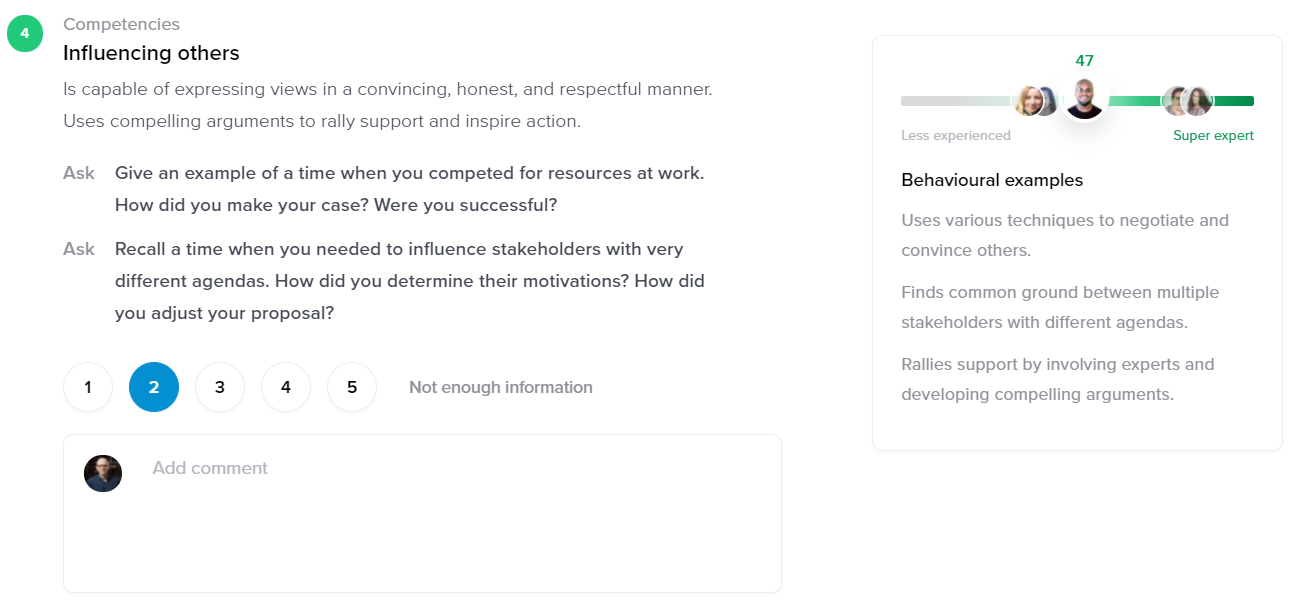Are more interviews better?
Interviews are one of the most common hiring rituals with good reason. A well-prepared interview can be a gold mine for valuable information, but how many interviews should a typical hiring process contain?
Tõnis Arro
Co-founder, Wisnio and Executive Lab
One of the most damaging myths I've come across in management is the idea that hiring decisions can be done quickly. After all, the more experienced the manager, the better they usually think of themselves as decision-makers. People decisions aren't anything special, right?
This reminds me of a story about the shortest interview by a legendary startup founder:
- Founder: Hi, thanks for coming. How long have you been using our product?
- Candidate: Well, actually, I've been planning to start using it but haven't started yet.
- Founder: Goodbye.
It took me some time to realise that this is a good example of bad management practice.
First, let's assume that having personal experience with the product was an essential requirement to be considered for the job. If that is the case, why was the candidate invited to the interview?
And while it's true that the founder didn't waste her/his time, it still wasted the candidate's time. After such an "interview", what do you think the candidate would tell her/his friends about the company?
Second, anything candidates can learn in days is never a reasonable hiring criterion. And thus, the usage of a new just launched software product as a hiring criterion tells more about the founder's ego than anything else.
Clearly, having a 5-second interview is not suitable for hiring, but is having five or even more rounds of interviews any better? I don't believe so. Here's why.
Do you really need five interviews?
I have heard companies proudly talk about having five or even more interviews with candidates. Or better yet, having the final candidates meet all the key people before making the decision. It nearly sounds like a majority vote makes the hiring decision!
Regardless of position seniority, there is no clear rule on how many interviews to have. The more responsibility the role carries, the more information you need to gather.
That might mean doing more than one interview, but it's not a necessity. In my experience, I have hardly seen a third interview being anything but a formality giving a higher-level executive or an HR person more peace of mind.
As the point of any hiring interview is to gather facts and assess certain qualities, what can you do with the third or even a second interview that you could not with the first?
Ready to give team and personal assessment a try? Sign-up here for a free Wisnio trial.
Interview ≠ free-floating chat

The problem seems to lie in how hiring managers conduct interviews. Job interviews are often nothing more than a free-floating chat combined with the usual waste of time, like making a lengthy company presentation.
Job interviews are often nothing more than a free-floating chat combined with the usual waste of time.
The result of it is an interviewer's general impression about the candidate leading to a decision, if it seems reasonable, to go forward "to the next step."
If "the next step" is a job-related task with measurable outcomes and enables decision-makers to compare the candidates, then there is at least some hope for the decision to be based on data.
Unfortunately, "the next step" is often just another free-floating interview ending up with impressions of the candidate without any hard data.
Combining or comparing the feelings or impressions of several people does not make the final decision any better.
Combining or comparing the feelings or impressions of several people does not make the final decision any better.
Bring structure to interviews
What interviews are lacking is structure along with clear goals. Interviews are a great tool to better understand candidates' knowledge, skills and behaviours, and how those match what hiring managers are looking for.
It's good practice to have one interview for assessing the candidate against the hiring criteria and another for business-related discussions.
In general, it's good practice to have one interview for assessing the candidate against the hiring criteria and another for business-related discussions. For the ladder, give candidates background information and time to prepare for the best results.
And while it's impossible to have a list of questions guaranteed to give reasonable input into hiring decisions, there are a few general rules that will make the process better:
Always have a concrete plan with questions ready for hiring interviews. A hiring interview is not a free-flowing chat;
Ask the same interview questions from all candidates. All questions have to lead to recovering new information that is necessary for candidate evaluation and comparison;
If you want to involve more than 2-3 decision-makers, use a panel interview: one person takes the lead and asks all the questions while others observe and make their evaluations according to the pre-agreed form;
Candidate evaluation, preferably done using a balanced scorecard, has to be done immediately after the interview and before any discussion between evaluators to avoid groupthink.
Follow these recommendations, and you'll be well on your way to becoming better at hiring. With a platform like Wisnio, all of this and more is already included. It comes with candidate-based behavioral interviewing guides, candidate evaluation, candidate comparison, and more!